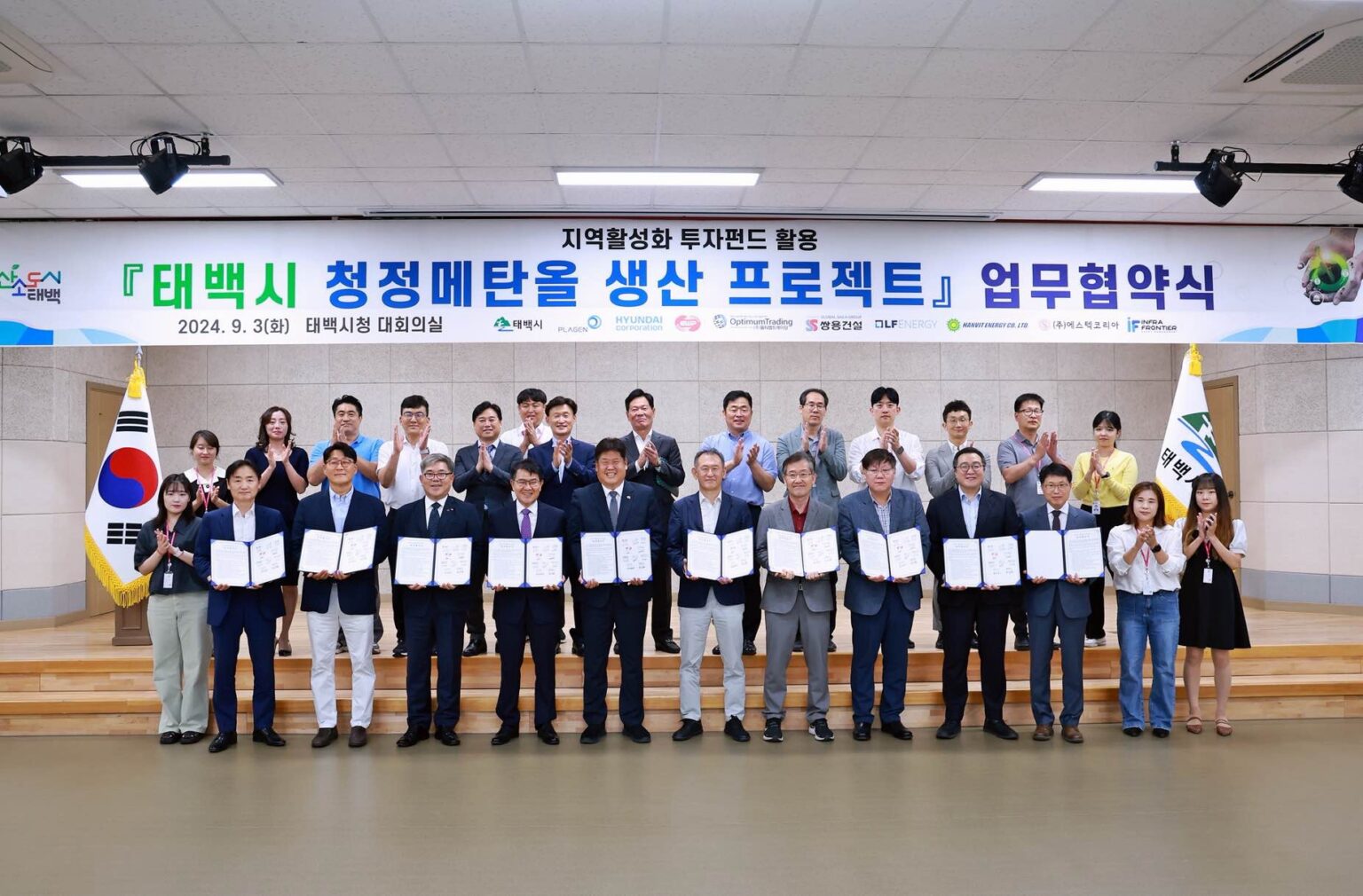Taebaek City, historically known as a coal mining hub, is set to embark on a groundbreaking green energy project. Along with eight other companies, Taebaek City and PLAGEN signed an investment agreement to develop a green methanol production facility, marking a major shift in the city’s industrial identity.
The project will see a 10,000 tons/year green methanol production plant construction. The facility, funded by the Regional Revitalization Investment Fund, will break ground in early 2025, with production expected by late 2027. Partners in the project include Korea East-West Power, Hyundai Corporation, Ssangyong E&C, and others, bringing together expertise in raw material procurement, plant construction, operations, and the sale of green methanol and carbon credits.
This partnership comes at a critical time for Taebaek City. The decline of the coal mining industry, capped by the closure of the Jangseong Mine in June 2024, has left the city grappling with economic stagnation and a shrinking population. Once home to over 120,000 people, Taebaek’s population has dwindled to 38,702 as of December 2023. Local leaders, such as Mayor Lee Sang-ho, view the green methanol project as an essential lifeline, revitalizing the city’s economy and positioning it as a future leader in carbon-neutral energy.
Green methanol, produced using forest residues and renewable energy sources like wind power, offers a more sustainable alternative to traditional gray methanol derived from coal or petroleum. Each ton of green methanol produced reduces 5.5 tons of carbon dioxide, a crucial benefit as the world intensifies efforts to combat climate change. Moreover, with international shipping regulations tightening in line with the International Maritime Organization’s goal of net-zero carbon emissions by 2050, demand for green methanol as a maritime fuel is expected to surge.
Taebaek City’s strategic location, with its abundant forest residues and renewable energy infrastructure, makes it an ideal site for this venture. The facility will also play a key role in South Korea’s plans for the U.S.-Korea Green Shipping Corridor, which aims to pilot methanol-powered ships between Busan and Seattle by 2027.
As the first domestic green methanol production facility, the Taebaek plant will be a cornerstone of Korea’s green energy ambitions. By 2030, the country aims to produce 500,000 tons/year of green methanol, with Taebaek contributing 20% of this target. The project is a testament to Korea’s commitment to carbon neutrality and a vital step in ensuring the economic future of Taebaek City.
